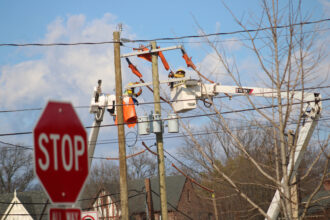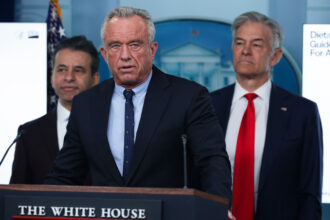LINCOLN, Neb.—Nebraska and TransCanada Corp. agreed on Monday to find a new route for the stalled Keystone XL pipeline that would steer clear of environmentally sensitive lands in the state.
Under pressure from green groups, the U.S. State Department last week ordered the company to find a new route for the line in a decision that set back the $7 billion, Canada-to-Texas pipeline by more than a year.
The pipeline would deliver 700,000 barrels a day of crude from Alberta’s oil sands to Texas refineries. But environmentalists strongly oppose the project, because of the route, concerns about spills and carbon emissions from production of oil sands crude.
In the deal with Nebraska, the state would pay for the new studies to find a route that would avoid the Sandhills region and the Ogallala aquifer, which provides water for millions in the area.
“I believe we will put the routing issue completely behind us,” said Alex Pourbaix, TransCanada’s president of Energy and Oil Pipelines. “We have heard and we have listened to the people of the Sandhills.”
The agreement will not change the timeline for a federal review, said a spokesman for the U.S. State Department, which has final approval for the project because it crosses an international border.
“Nothing has changed in the process since last Thursday’s announcement as any new proposed routes will be subject to the thorough, rigorous and transparent review process we have undertaken throughout,” said Mark Toner, deputy spokesman for the department.
“Given the process, we cannot provide a specific end-date, other than to say that based on the total mileage of potential alternative routes that would need to be reviewed, we anticipate the evaluation could conclude as early as first quarter of 2013,” Toner said.
That means the Obama Administration will likely not have to deal with the politically charged issue until after the 2012 election.
Nebraska state legislators will vote on the deal on Tuesday, Mike Flood, the legislature’s speaker said.
“TransCanada is willing to consider a route that sites the pipeline out of the Sand Hills,” said Flood. “This is our land. These are our people. We will pay for this. It’s the right thing to do.”
In Washington to lobby for Keystone, Alberta Premier Alison Redford said the announcement was “good news.”
“It’s something I can be more optimistic about now than I could have been this morning,” said Redford, emerging from a meeting with House Speaker John Boehner.
But the Republican chairman of the House Energy and Commerce committee, who was part of the meeting in Boehner’s office, was less optimistic the deal could lead to a quicker decision.
“If they look at rerouting, that takes a long time,” committee chairman Fred Upton said.
(Additional reporting by Roberta Rampton in Washington and Paul Eckert in Guam, writing by Scott Haggett and Russell Blinch; editing by Rob Wilson, David Gregorio, Bob Burgdorfer and Carol Bishopric)
About This Story
Perhaps you noticed: This story, like all the news we publish, is free to read. That’s because Inside Climate News is a 501c3 nonprofit organization. We do not charge a subscription fee, lock our news behind a paywall, or clutter our website with ads. We make our news on climate and the environment freely available to you and anyone who wants it.
That’s not all. We also share our news for free with scores of other media organizations around the country. Many of them can’t afford to do environmental journalism of their own. We’ve built bureaus from coast to coast to report local stories, collaborate with local newsrooms and co-publish articles so that this vital work is shared as widely as possible.
Two of us launched ICN in 2007. Six years later we earned a Pulitzer Prize for National Reporting, and now we run the oldest and largest dedicated climate newsroom in the nation. We tell the story in all its complexity. We hold polluters accountable. We expose environmental injustice. We debunk misinformation. We scrutinize solutions and inspire action.
Donations from readers like you fund every aspect of what we do. If you don’t already, will you support our ongoing work, our reporting on the biggest crisis facing our planet, and help us reach even more readers in more places?
Please take a moment to make a tax-deductible donation. Every one of them makes a difference.
Thank you,












